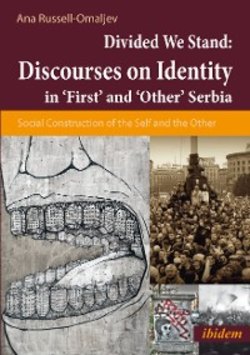Читать книгу Divided We Stand: Discourses on Identity in ‘First’ and ‘Other’ Serbia - Ana Omaljev - Страница 11
Aims of this book
ОглавлениеA number of important questions frame this project. How have “First” and “Other” Serbia elites constructed and reconstructed identity discourses in post-Milošević Serbia? Why does one discourse become more dominant on certain issues? What images were utilized and why were these images used and not others? The central enquiry of this study is the question of how Serbian national identity has been forged and constructed by divergent, competing visions of First and Other Serbia. My analysis is directly concerned with First Serbia’s attempts to construct the Other Serbia as an enemy within, especially in connection with their construction of Europe as a foreign, distant, and threateningly alien place. In this way, First Serbia creates a new Euroskeptic, anti-West political identity for itself through the rearticulation of certain elements of old discourses about the nation, identity and Europe which derive from the Milošević era. This book will examine this practice of othering of Europe, and of each other, in the First and Other Serbia discourses, and the role such othering plays as a strategy in the discursive construction of collective Serbian identity. Which traits, characteristics, qualities and features are attributed to “Europe,” and which to Serbia, in First and Other Serbia texts? From what perspective or point of view are these referential or nomination strategies, positive or negative predications of the Self and the Other, and arguments for or against Europe, expressed? I hold that First Serbia texts construct the Serbian nation, identity and Europe, as each having essential qualities, while representing Serbia as rigid, motionless and static, and resistant to the idea of change. This is in sharp contrast to Other Serbia’s representation of the Serbian nation and identity as substandard, lesser and inferior to Europe, also essentialized, still backward and undeveloped, and deprived of the opportunity for positive change. Neither version can be any more true than the other, of course, as both “Serbia” and “Europe” function on the level of perceptual constructs. Any study dealing with the re-constitution of political discourses is thus confronted with ambiguity, temporality and friction. It is my hope, however, that this will produce a more nuanced view of how best to approach the research questions.
